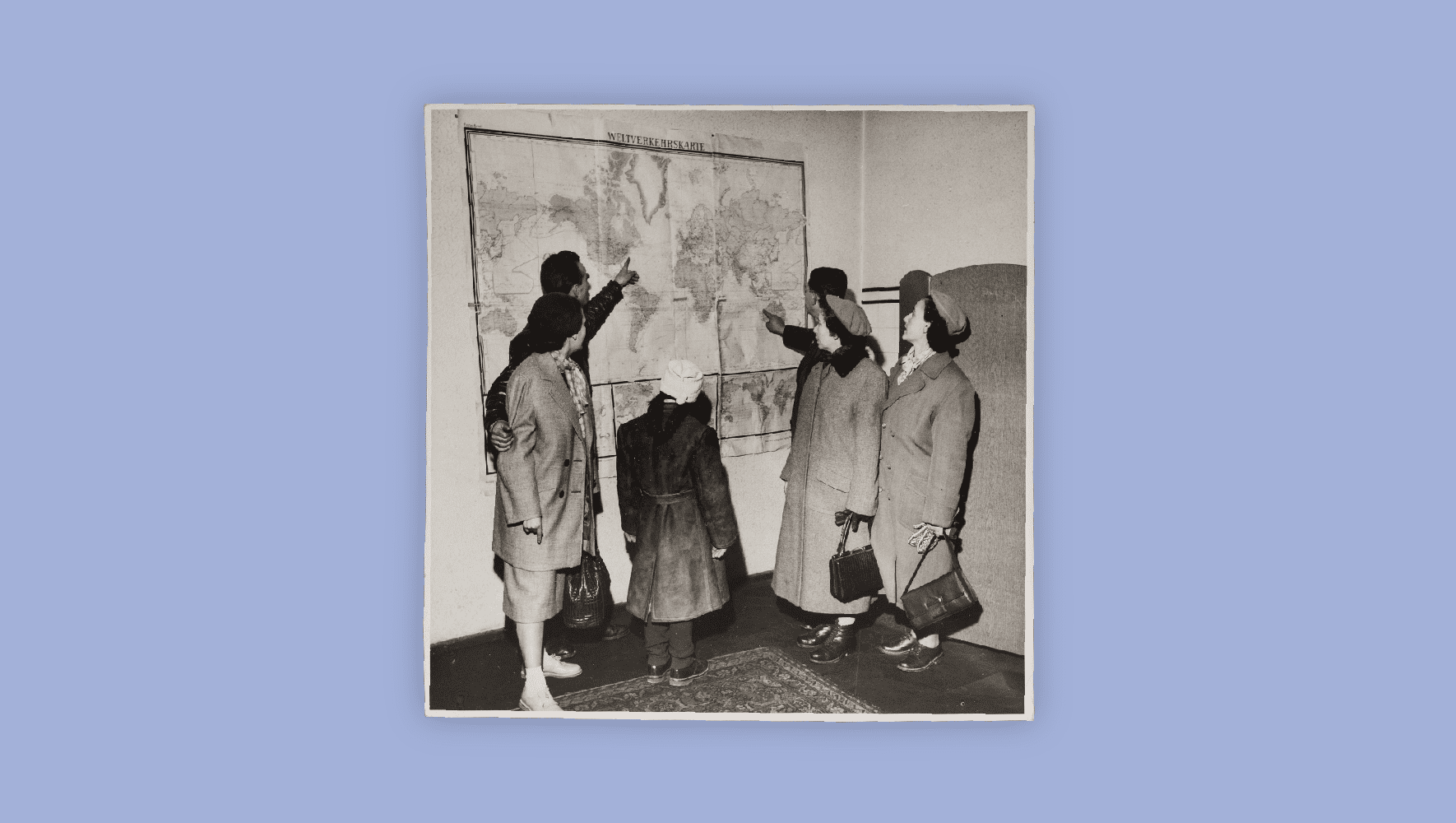The International Refugee Convention Turns 66 Years of Age
By Robert Aronson, Guest Contributor
Jul 28, 2017

A crowd of happy cheering children rescued from Castro Island by the Catholic Welfare Organisation, at a refugee camp south of Miami waiting for future resettlement in other cities, circa 1960.
(Kurt Severin/Three Lions/Getty Images)
In June 1939, as the systematic persecution of Jews and other ethnic, racial, sexual, and religious minorities by the Nazi regime was morphing into outright genocide, the MS St. Louis, carrying 937 passengers, most of whom were Jewish refugees, was turned back from the United States, essentially dooming its passengers to the unfolding horrors that would soon become the Holocaust. At that point in time, there was no universal recognition that nations bore either a moral or a legal responsibility to provide safe haven to those suffering from persecution.
Years later, one of the ship’s passengers and a survivor of the Holocaust, Sol Messinger, on being asked whether he felt bitterness at seeing various refugee populations entering the United States whereas the Jews on the St. Louis were denied entry and essentially condemned to what would become the Nazi genocide, responded: “I like to think that because of us is why [the United States] lets [refugees] in.”
Friday, July 28, marks the 66th anniversary of the signing of the International Refugee Convention, which represents the fundamental document that defines a refugee as a person fearing persecution in his/her home country for reasons of race, religion, nationality, membership in a particular social group, or adherence to a particular political opinion, identifies the responsibilities of individual nations to provide safe haven to persecuted individuals, and creates a worldwide, aspirational protective system for refugees and those fleeing persecution.
While the 1951 Refugee Convention is a secular document that extends protection and dignity to those facing persecution, the recognition of the justifiable need to flee persecution and to seek safe haven in other countries is redolent of Jewish religious texts, moral precepts, historical experience, ethical teachings, and cultural norms. Our history recurrently (and sickeningly) records the need of Jews to escape persecution not for any individual failings, but rather in reaction to systematic oppression directed to an entire people. We understand the experience of being persecuted and the challenges and oftentimes the degradation of seeking asylum in strange lands in which we become the stranger. And most of all, we know the tragedy of having our fundamental need for safety denied by potential resettlement countries.
But the fundamental triumph of the Jewish people is that despite a lamentable saga of persecution throughout human history, we have found a way not only to endure but to prevail, and in so doing, we bear witness as well as the commitment to kiddush hachayim – the sanctification of life. Refugee protection, as embedded in the entire fabric of the Jewish experience and more recently articulated by the Refugee Convention, is a commitment to make real the transformative power of hope and to give moral meaning and legal protection to those who otherwise have no voice and little hope.
Particularly in light of the current global refugee crisis, much work needs to be done to rouse the world community from its complacency on the travesties that imperil so many global citizens. HIAS, inspired by Jewish ethics, moral precepts, and teachings, imbued by the Jewish historical experience, and bearing witness to the memory of Jews and others throughout history who have searched for safety, remains dedicated in our commitment to serve refugees and other displaced persons of concern. Together with our supporters in the Jewish and general communities and our resettlement and government partners, HIAS provides refugees welcome, safety, dignity, protection, empowerment, and most of all, the precious gift of lives of hope.
Robert Aronson is a member of the HIAS Board. He is an Immigration Attorney at the Minneapolis law firm of Fredrikson & Byron, P.A., providing immigration legal services largely to academic institutions, biomedical research organizations, and medical providers. He is the 2017 recipient from the Cardozo Society, the affinity group of Jewish lawyers, jurists, and law students of the Twin Cities, of its Lifetime Achievement Award, as well as the Distinguished Service Award from the Indiana University School of Law.



